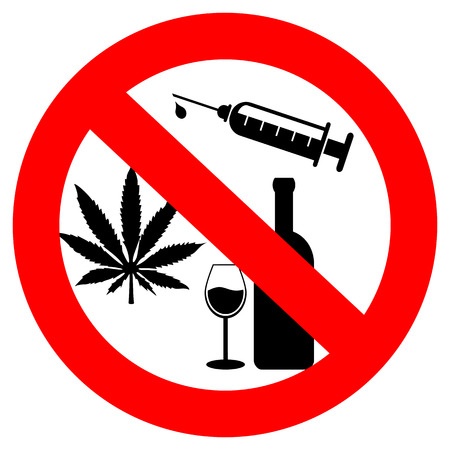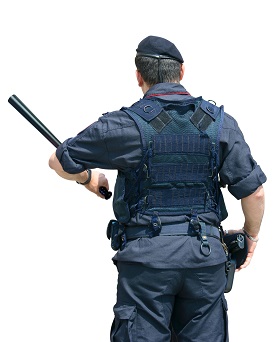Drug Houses Found in Bust
Three suspected drug houses were raided and 10 people were arrested in a big drug sweep in El Mirage Wednesday morning.
El Mirage police, along with SWAT teams from DPS and MCSO served search warrants at three homes in the area.
Two homes were next door to each other; a third home was right across the street.
DPS believes the homes were sites of alleged gang, drug and prostitution activities.
“Especially in a smaller community, any time you can shut down three drug houses is phenomenal,” said one DPS detective. “It’s a huge impact in the community.”
Drug Informant
With the help of someone she didn’t know was an informant, records state, Acosta-Quintana transported the supplies to men whose job entails hiding in the desert for weeks on end.
She’s part of a group of 10 U.S. citizens and one Mexican national accused by the feds of running a sophisticated resupply operation for some of the “vast network” of cartel scouts.
In a complaint (below) and indictment made public last month, an assistant Arizona U.S. Attorney describes in detail how people employed by drug cartels allegedly brought food, fuel, and other supplies from Phoenix to the scouts.
The scouts’ job, in turn, was to guide marijuana smugglers through the Tohono O’odham Nation and into Arizona, making sure they stayed far away from law-enforcement officials.
Marijuana Bust
The February 28 federal indictment charges all 11 with a single count of conspiracy to possess with intent to distribute marijuana.
Records don’t state whether the suspects are Arizona residents or members of the Tohono O’odham tribe, but implies they mostly hail from metro Phoenix or the reservation.
The Native American reservation in southern Arizona, which shares a roughly 70-mile border with Mexico, has been a focal point in the new Trump administration immigration plan.
The tribe strongly opposes the construction of a border wall on its land. But its international border, which is marked in some places by barbed-wire fence or nothing at all, has for years been a sieve for smugglers.
Homeland Security Investigations began its probe of the group in October 2015, after a confidential source outlined much of the operation.
The bust, while noteworthy, may barely make a dent in the overall scout problem. Authorities occasionally target the scouts, like in the raid of a desert area near Arizona City last June.
However, going after the people who help the scouts has been difficult. One obstacle is that it’s not illegal to drive around with supplies or drop them off somewhere.
Drug Trafficking Case
The 15-page complaint in the case, which was filed in January and unsealed late last month, outlines in detail the feds’ case against the alleged conspirators.
Drug-trafficking organizations “utilize a vast network of scouts and scout helpers” to get the marijuana through the reservation, the complaint states.
Scouts are spread out all across what’s known as the “west desert corridor,” which runs roughly from State Route 286 to Yuma, and from the Mexican border to Interstate 8, where vehicles can pick up the pot loads.
Equipped with cell phones, binoculars, and digitally encrypted walkie-talkies, they take positions in hills and rocky outcrops, relaying information to load drivers and backpackers on foot.
For each group of smugglers that reaches their destination successfully, the scouts will be typically paid $500 to $1,000 apiece.
Secret Drugs
They’re hired to work through a “smuggling cycle” of eight to 12 weeks, but take vacations on Easter, Christmas, and Three Kings Day.
Within a group of scouts, one or more people will have specialized tasks, from scoping the area with binoculars to charging radios and cellphones to cooking.
The scouts need occasional drops of food, clothes, camping equipment, and other provisions in order to conduct their mission “without interruptions.”
That’s where the resupply personnel come in. They’re usually people who are familiar with the area because they live nearby.
The cartel gives “resupply members” vehicles, which these members sometimes re-title in their names, plus money to buy the supplies.
The complaint details a few dozen of the resupply operations.
The feds charge that on October 7, 2015, Maria Roxanna “Roxy” Acosta-Quintana was involved in one of them.
Feds Get Involved
They say she instructed the confidential source to drive an SUV to Acosta-Quintana’s mother’s house in Phoenix to Llanteria Michoacano’s #2, a tire shop at 44th Avenue and Indian School Road.
At the house, the informant received the keys to the SUV, which was pre-packed with six large, black trash bags full of supplies. Acosta-Quintana’s sedan was also packed with six bags of supplies.
Acosta-Quintana led her helper-informant to the tire shop, where a pickup truck was waiting. They loaded all 12 supply bags plus two spare tires into the truck.
The informant then hopped in the pickup and told the driver, an unidentified man, how to get to Arizona City near the Tohono nation.
Once at the intersection of Sunland Gin and Green Reservoir roads, “10 Hispanic males dressed in camouflage clothing came out from behind some bushes and were given the Ford pickup,” the complaint states.
Acosta-Quintana and the informant then returned to Phoenix.
In another example, the informant told officials how bags of supplies were taken directly to scouts working in the Sheridan Mountain Foothills, Castle Mountains, and Cimarron Mountains near Federal Route 34 on the reservation. In that same operation, the helpers took bags to the Tohono villages of Hikiwan and Kaka.
Resupply members often used the Walmart at 51st Avenue and Indian School Road to pick up supplies and exchange vehicles.
Border Patrol
Another resupply member, Fawn Eveningstar Manuel, was stopped in January 2016 by the U.S. Border Patrol. During the stop, Manuel admitted that she was taking bags of supplies in her SUV to Hikiwan “to assist with illegal alien smuggling occurring in the village of Hikiwan.”
As the investigation progressed, the feds tracked certain resupply vehicles to desert locations. In one such instance in January 2016, they found and arrested nine suspected smugglers with 473 pounds of marijuana.
Yasmeen Pitts O’Keefe, a spokeswoman for U.S. Immigration and Customs Enforcement, declined comment on the case.
The indicted U.S. citizens are:
• Maria Roxanna Acosta-Quintana
• Angelica Alvarado
• Nicole Havier
• Dora Carreras
• Fawn Eveningstar Manuel
• Annai Arlene Hernandez
• Jesus Gilberto Parra-Acosta
• Jackie Ann Garcia
• Antonio Pasqual Aguilar-Sanchez
• Lawrence Juan Jr.
• Andrew Ortega
Ruben Villegas-Acosta of Mexico was also indicted.
Criminal Defense Lawyers PLLC
668 N 44th St. Suite 300
Phoenix, AZ 85008
(480) 351-6445
https://www.criminaldefenselawyers.me

